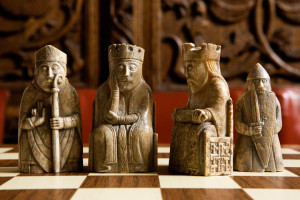This will be a talk for the Mid-Atlantic Mathematical Logic Seminar at Virginia Commonwealth University, a conference to be held April 1-2, 2017.

Abstract. The principle of open determinacy for class games — two-player games of perfect information with plays of length , where the moves are chosen from a possibly proper class, such as games on the ordinals — is not provable in Zermelo-Fraenkel set theory ZFC or Gödel-Bernays set theory GBC, if these theories are consistent, because provably in ZFC there is a definable open proper class game with no definable winning strategy. In fact, the principle of open determinacy and even merely clopen determinacy for class games implies Con(ZFC) and iterated instances Con(Con(ZFC)) and more, because it implies that there is a satisfaction class for first-order truth, and indeed a transfinite tower of truth predicates for iterated truth-about-truth, relative to any class parameter. This is perhaps explained, in light of the Tarskian recursive definition of truth, by the more general fact that the principle of clopen determinacy is exactly equivalent over GBC to the principle of elementary transfinite recursion ETR over well-founded class relations. Meanwhile, the principle of open determinacy for class games is provable in the stronger theory GBC+-comprehension, a proper fragment of Kelley-Morse set theory KM. New work by Hachtman and Sato, respectively has clarified the separation of clopen and open determinacy for class games.
 This is joint work with Victoria Gitman. See our article, Open determinacy for class games.
This is joint work with Victoria Gitman. See our article, Open determinacy for class games.
Slides

 This is joint work with Victoria Gitman. See our article, Open determinacy for class games.
This is joint work with Victoria Gitman. See our article, Open determinacy for class games.




